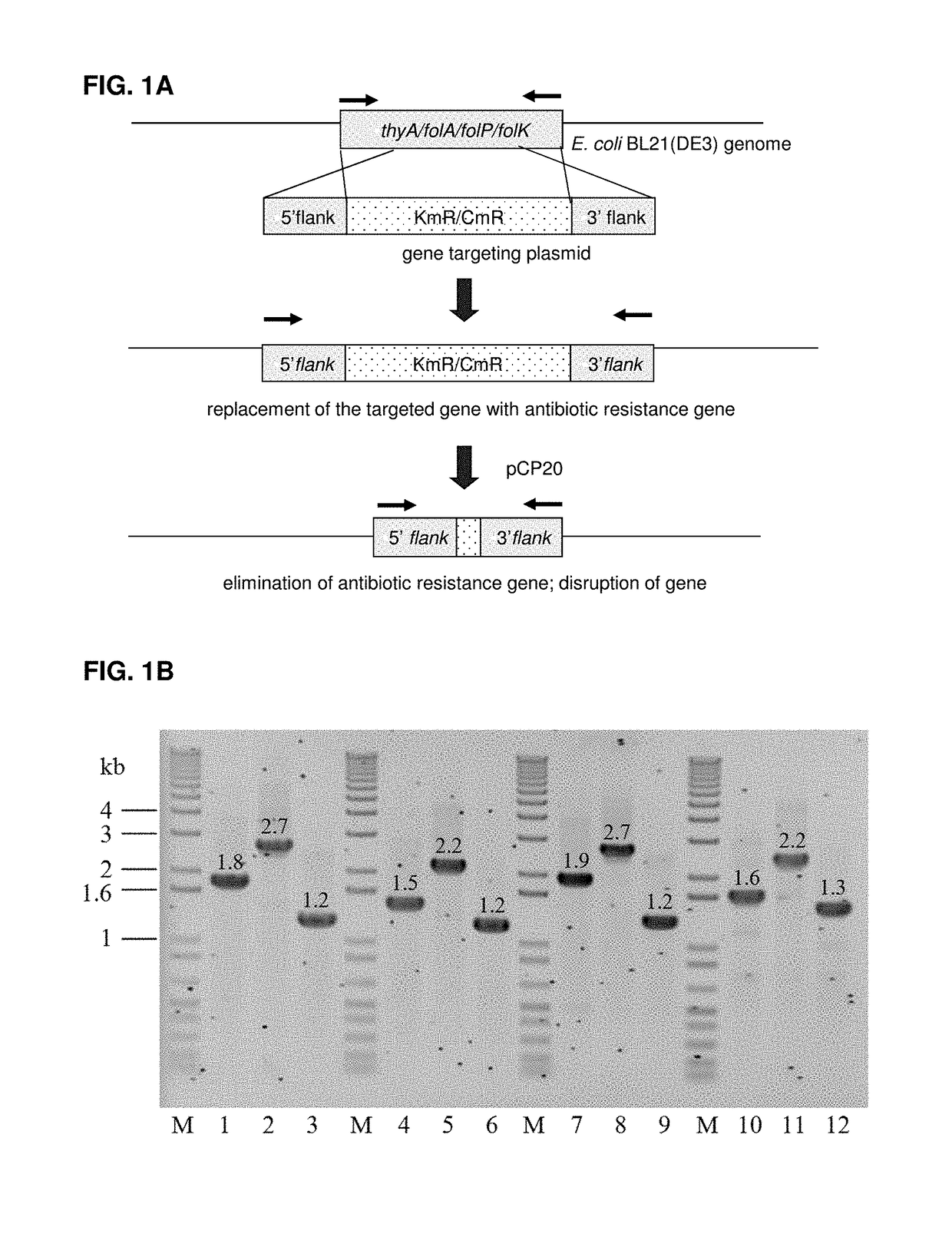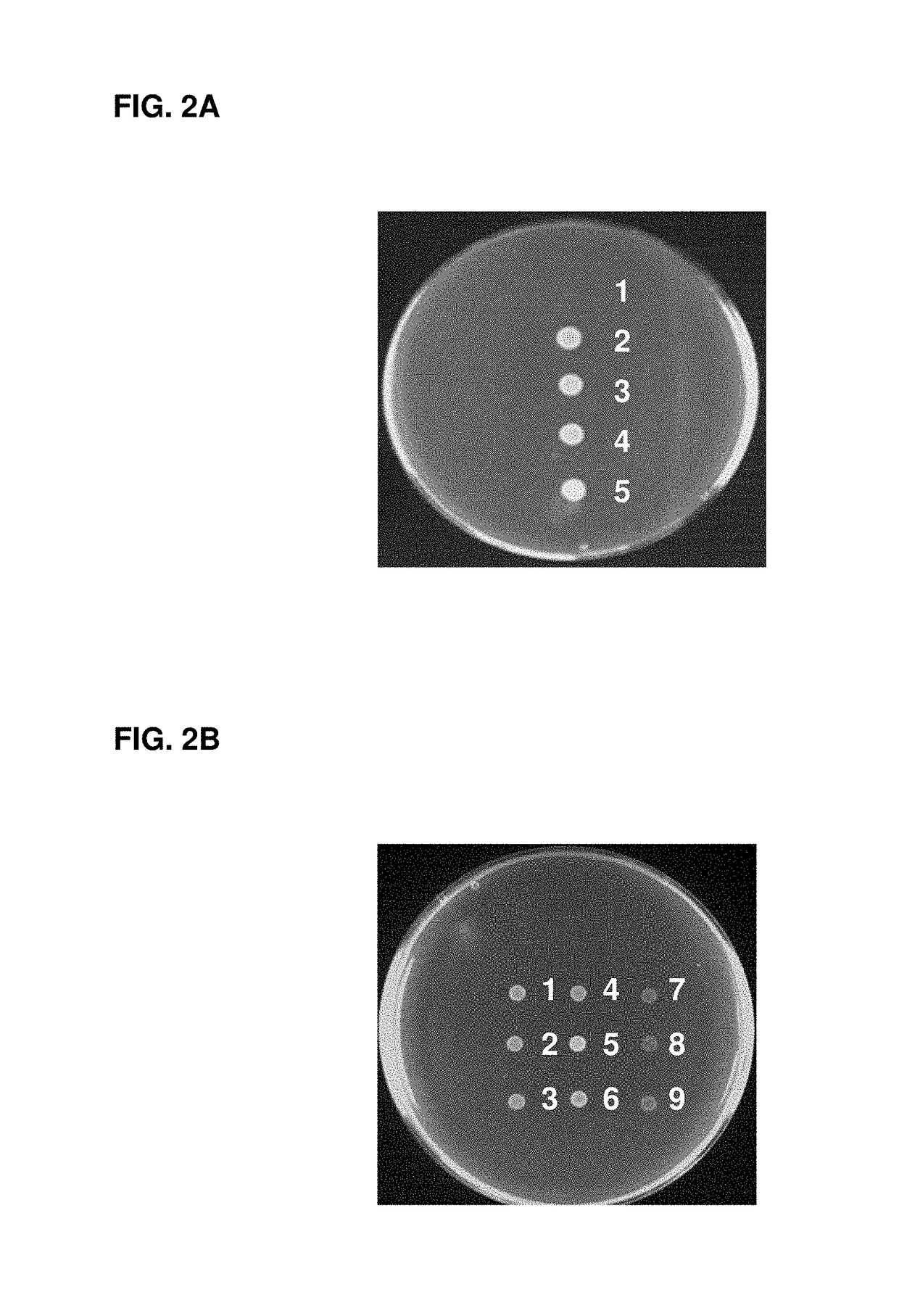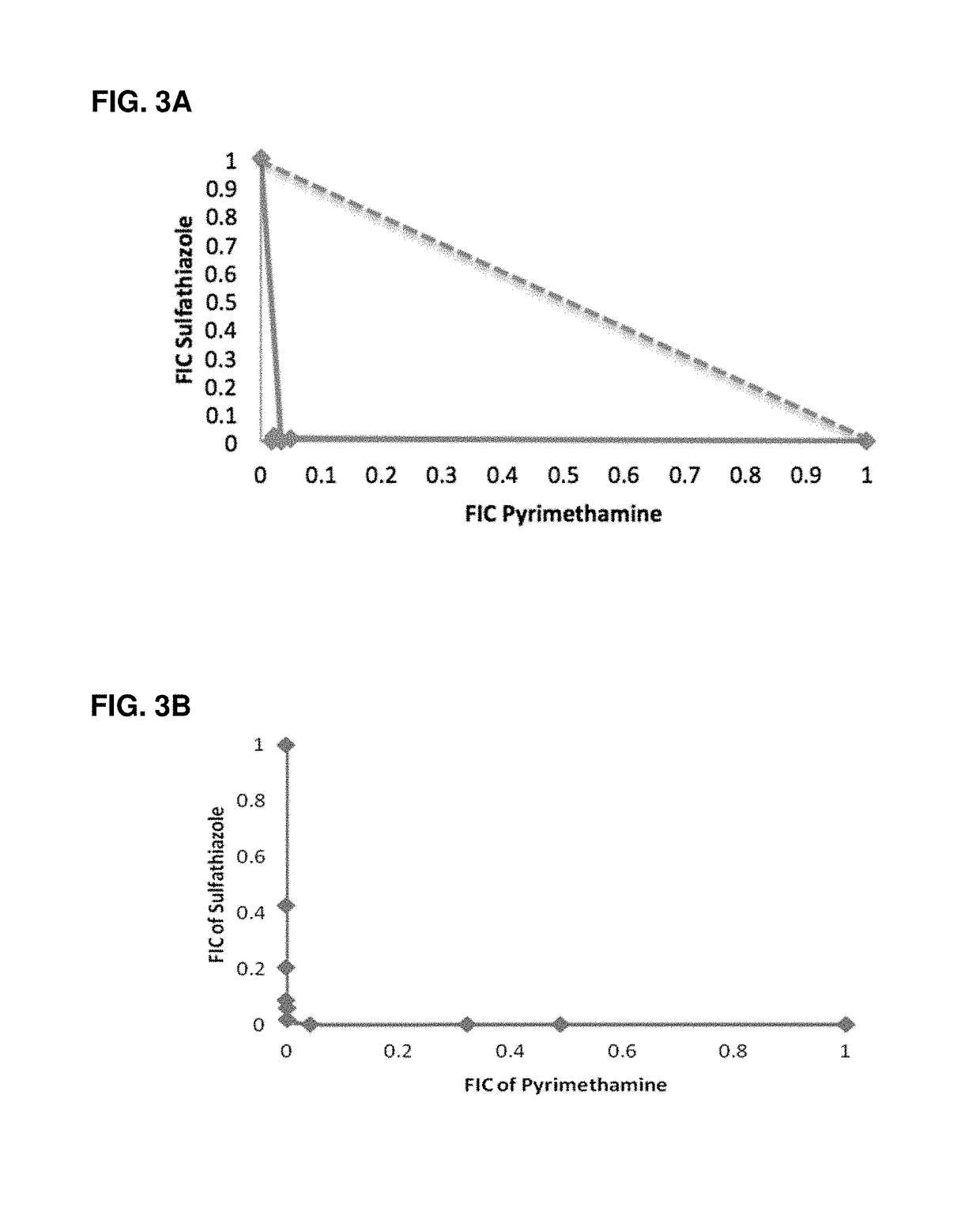Escherichia coli cell line with thyA knockout, folA knockout, and one or both of folP knockout, and folK knockout
a technology of dihydrofolate reductasethymidylate and dihydrofolate reductasethymidylate, which is applied in the direction of transferases, instruments, ligases, etc., can solve the problems of limiting antimalarial screening, laborious assay, and expensive equipment, and none of the cells can test both types of drugs at the same tim
- Summary
- Abstract
- Description
- Claims
- Application Information
AI Technical Summary
Benefits of technology
Problems solved by technology
Method used
Image
Examples
Embodiment Construction
[0075]As described above in disclosure of invention section
INDUSTRIAL APPLICABILITY
[0076]As described above in disclosure of invention section
REFERENCES
[0077]1. Bunyarataphan S., Leartsakulpanich U., Taweechai S., Tarnchompoo B., Kamchonwongpaisan S., and Yuthavong Y. (2006) Evaluation of the Activities of Pyrimethamine Analogs against Plasmodium vivax and Plasmodium falciparum Dihydrofolate Reductase-Thymidylate Synthase Using In Vitro Enzyme Inhibition and Bacterial Complementation Assay. Antimicrobial Agents and Chemotherapy 50: 3631-3637.[0078]2. Chusacultanachai S., Thiensathit P., Tarmchompoo B., Sirawaraporn W., and Yuthavong Y. (2002) Novel antifolate resistant mutations of Plasmodium falciparum dihydrofolate reductase selected in Escherichia coli. Molecular and Biochemical Parasitology 120: 61-72.[0079]3. Ahrweiler P. M., and Frieden C. (1988) Construction of afol Mutant Strain of Escherichia coli for Use in Dihydrofolate Reductase Mutagenesis Experiments. Journal of Bacter...
PUM
| Property | Measurement | Unit |
|---|---|---|
| temperature | aaaaa | aaaaa |
| antibiotic resistance | aaaaa | aaaaa |
| drug resistance | aaaaa | aaaaa |
Abstract
Description
Claims
Application Information
 Login to View More
Login to View More - R&D
- Intellectual Property
- Life Sciences
- Materials
- Tech Scout
- Unparalleled Data Quality
- Higher Quality Content
- 60% Fewer Hallucinations
Browse by: Latest US Patents, China's latest patents, Technical Efficacy Thesaurus, Application Domain, Technology Topic, Popular Technical Reports.
© 2025 PatSnap. All rights reserved.Legal|Privacy policy|Modern Slavery Act Transparency Statement|Sitemap|About US| Contact US: help@patsnap.com



